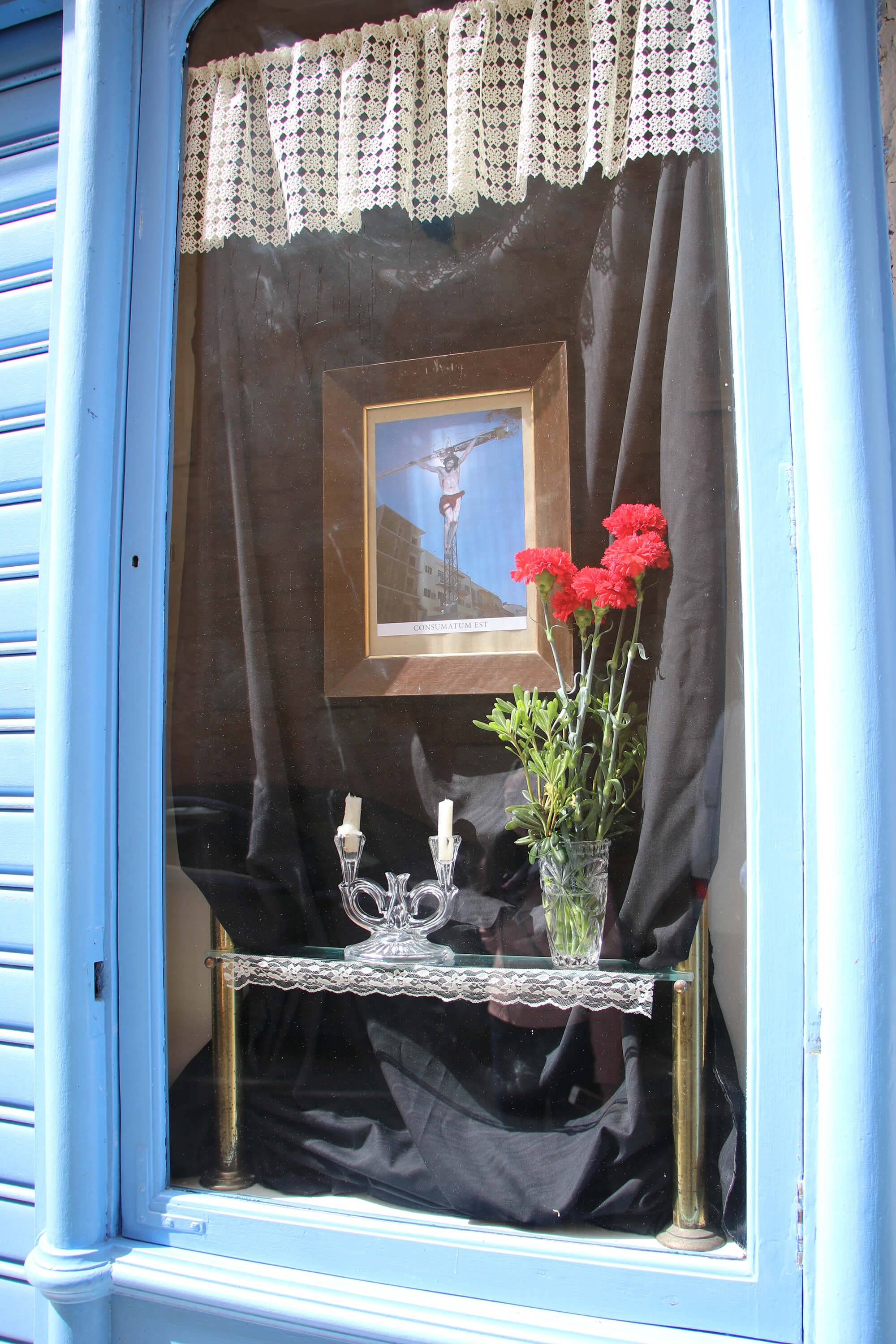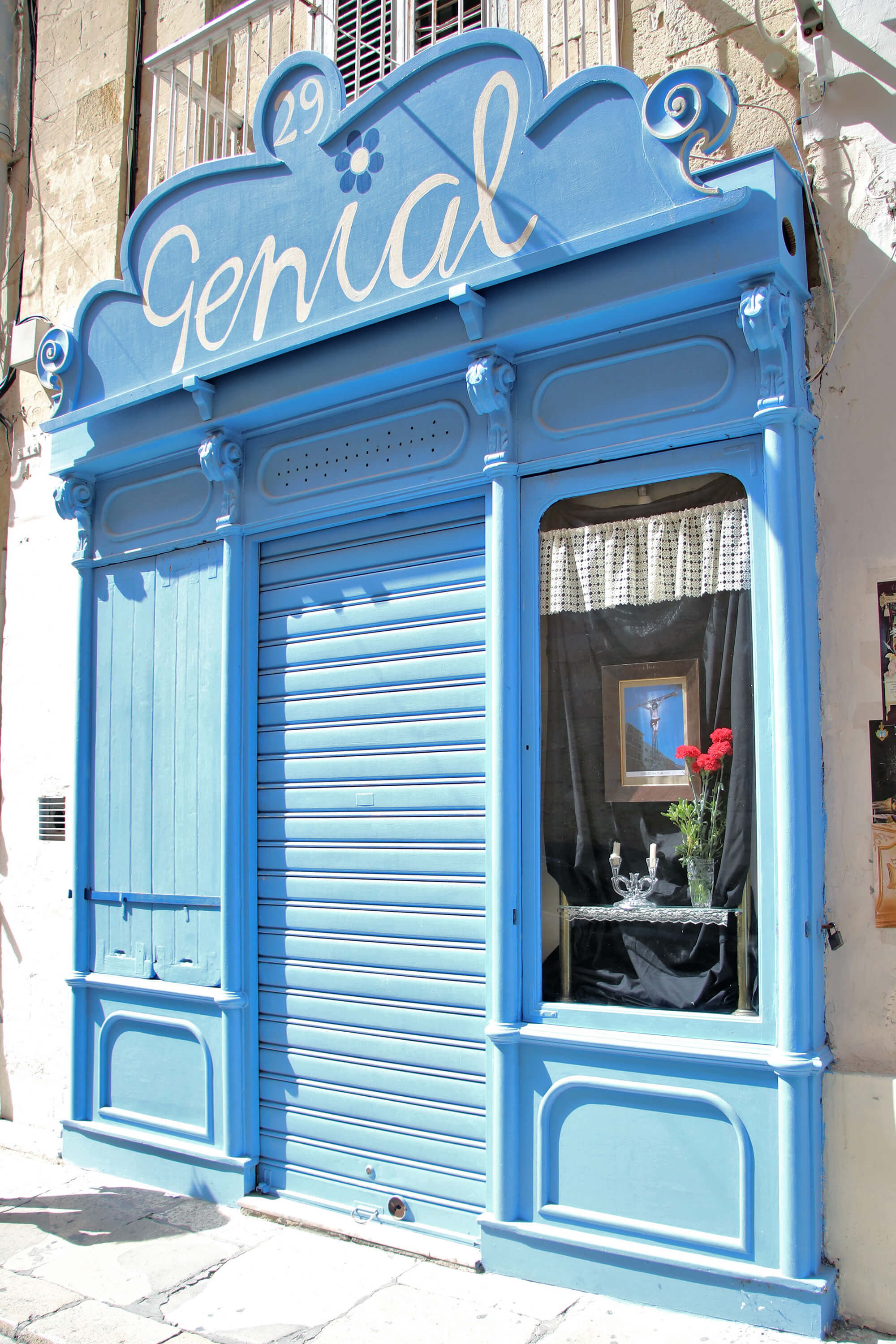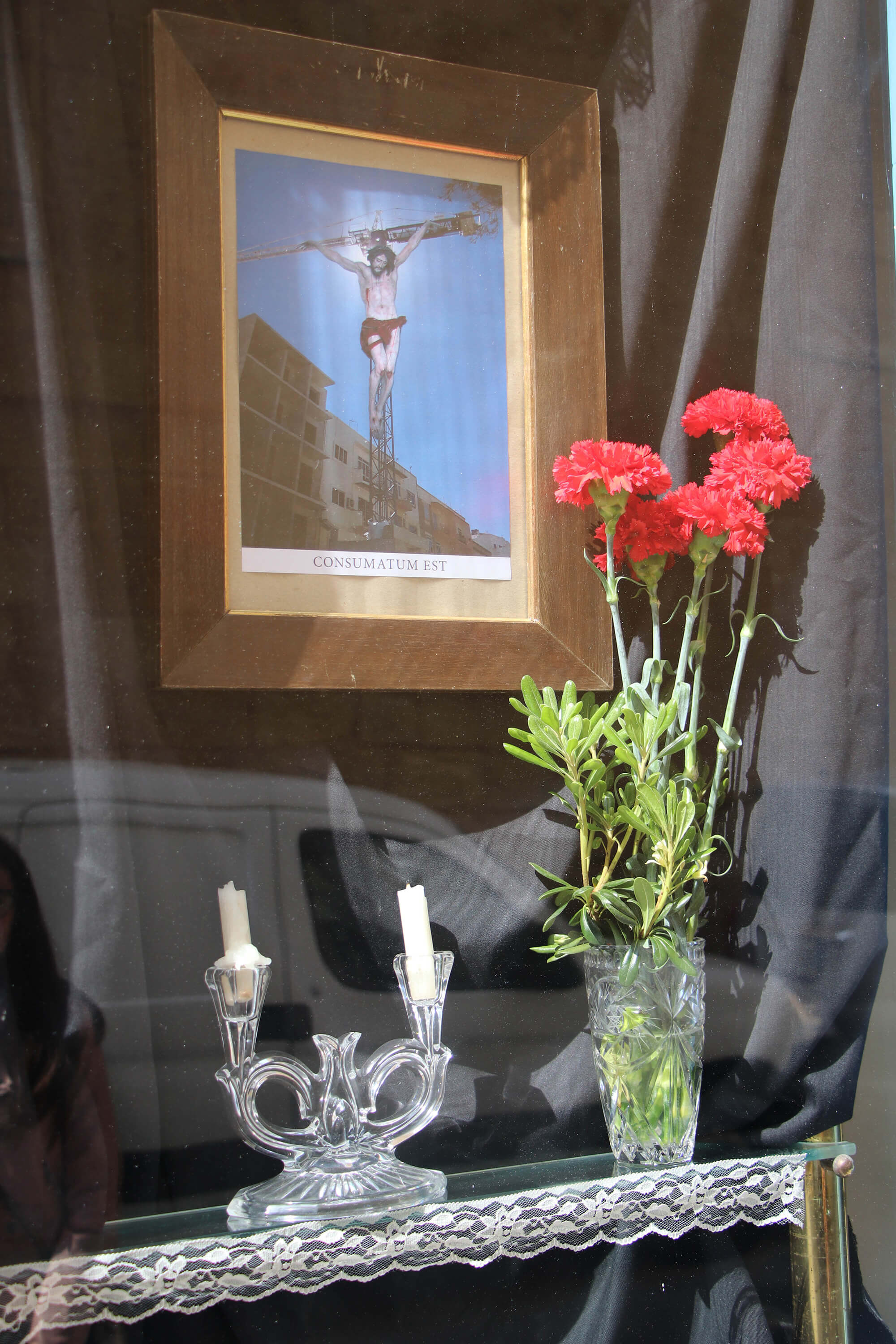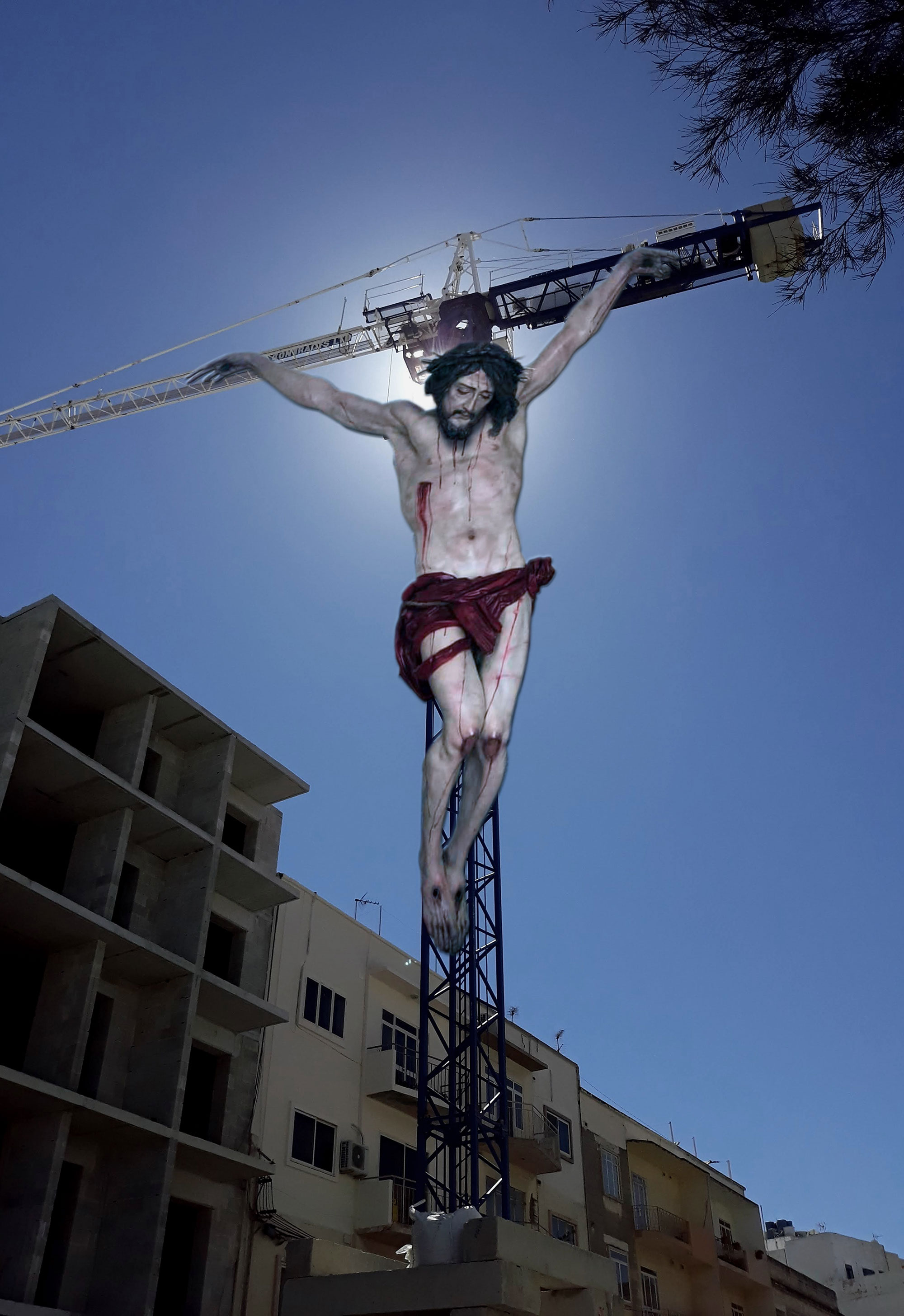Whilst a new breed of Maltesers are initiating a process of peaceful activism and protest against the power of developers in the Maltese Islands, this artwork sentences the case as a closed affair.
The Catholic religion and its traditions still hold a strong influence over the majority of the Maltese population. On Maundy Thursday and Good Friday, large numbers of people flock to Valletta to witness, partake in, or simply be a part of the various rituals that unfold. During these days, individuals engage in prayers, visit themed exhibitions, and collect holy pictures, while a procession of participants dressed in Biblical costumes, accompanied by brass bands and individuals carrying statues representing different stages of Christ’s suffering, make their way through the crowds.
“Consumatum Est,” featured a digitally manipulated holy picture portraying the lifeless body of Christ affixed to a tower crane shaped like a crucifix. In recent years, tower cranes have become a ubiquitous presence in the Maltese landscape, viewed by protesters as symbols of destruction. The framed picture was prominently displayed in a window at a local grocery shop on Archbishop Street in Valletta. Unveiled on the morning of Thursday, April 18, 2019, it enticed passersby to pause and contemplate what initially appeared to be a conventional sacred image.
However, beyond the religious rituals and artistic interpretations, a deeper message resonates. The installation symbolically highlights the detrimental consequences of unchecked environmental exploitation, resource exhaustion, and land abuse. These issues have plagued the country for far too long, leaving both the nation and the quality of life metaphorically “nailed to death.”
Through the juxtaposition of religious symbolism and the towering presence of the cranes, “Consumatum Est” prompted viewers to reflect on the urgent need for responsible stewardship of our environment. It drew attention to the consequences of our actions, emphasizing that our unchecked consumption and disregard for sustainability have dire implications for our society.
–
Heartfelt gratitude goes to the Spanish sculptor, Juan Bautista, for generously permitting the reinterpretation of his sculpture for this purpose. A word of appreciation also goes to Sunny Psaila, who graciously offered his shop window as a space for the installation. Additionally, many thanks go to the talented photographer, Carl Farrugia, who skillfully captured the setup through his lenses, immortalizing it for posterity.




